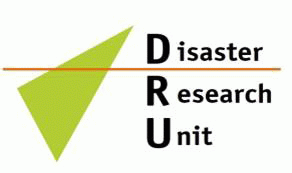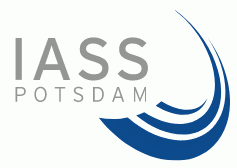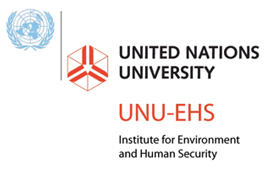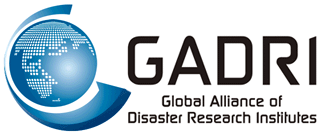- Home
- About
- Events
- Members
- About Members
- Member Institutes
- Algeria
- Argentina
- Australia
- Austria
- Bangladesh
- Brazil
- Bulgaria
- Canada
- China, People's Republic of
- Colombia
- Ecuador
- Egypt
- European Commission
- France
- Germany
- Ghana
- Hong Kong (People's Republic of China)
- India
- Indonesia
- Iran (Islamic Republic of)
- Israel
- Italy
- Japan
- Korea, Republic of
- Lao PDR
- Malaysia
- Mexico
- Morocco
- Nepal
- New Zealand
- Oman
- Phillippines
- Slovakia
- South Africa
- Sri Lanka
- Sudan
- Sweden
- Switzerland
- Chinese Taipei
- Thailand
- Turkey
- United Kingdom
- United States
- Vietnam
- Zimbabwe
- Membership
- Activities
- Resources
- GADRI Archives
- Home
- >
- Members
- >
- Member Institutes
- >
- Germany
 |
Center for Disaster Management and Risk Reduction Technology (CEDIM) Eggenstein-Leopoldshafen |
| Outline The Center for Disaster Management and Risk Reduction Technology (CEDIM) is an interdisciplinary research center of the Karlsruhe Institute of Technology (KIT). CEDIM operates under the leadership and direction of the directorate, coordinator and deputy coordinator. The coordinating committee meets regularly to oversee CEDIM's conceptual and personal planning. The advisory board is a group of external advisers in the field of disaster management. In late 2011, CEDIM embarked on a new style of disaster research known as Forensic Disaster Analysis. In the new research program CEDIM Forensic Disaster Analysis (CEDIM FDA) CEDIM researchers will analyse disasters and their impact in near real-time. The core of CEDIM's new style of analysis is to examine disasters in an interdisciplinary manner with a focus on the complex interactions between (1) the natural hazard, (2) the technical installations, facilities, and infrastructures, and (3) the societal structures, institutions and capacities. In the years before, CEDIM's research activities were devoted to several projects and research groups. Between 2003 and 2008 the focus of CEDIM research was on three pojects: Riskmap Germany, Megacity Instanbul, and Modelling of extreme flooding events. The main goal in the first CEDIM project, the Riskmap Germany, was to conduct an area-wide quantification of natural hazards and man-made hazards in Germany risks. For each community, the natural hazard that is likely to cause the highest damage was identified. The Megacity Istanbul project was an interdisciplinary project to analyze the consequences of earthquakes in rapidly growing metropolitan areas. The aim of the research project modeling extreme floodevents was the development of a modeling system to quantify risks of extreme flooding in large river basins. In the system, computer models and modules are coupled together to simulate the functional chain: hydrology - hydraulics - polder diversion - dyke failure - flooding - damage estimate - risk assessment. [detail] --> |
|
 |
Disaster Research Unit (DRU), Department of Social and Political Sciences
|
| Outline The Disaster Research Unit (DRU) of the Freie Universität Berlin is a sociological and ethnological research institution specialising in interdisciplinary research into disasters. The DRU's body of work encompasses the entire "disaster cycle": from its inception, its progression, into its after-math and the associated reconstruction and coping. This research topically breaks down into risk perception, risk reduction, disaster prevention, preparation, warning and disaster behaviour, all the way to disaster coping and sustainable reconstruction for industrialised nations as well as the so-called "Global South". In addition to this, the DRU engages in social scientific and humanities basic research alongside other applied research and consulting. In all of this, the cultural and social aspects form the core pillar of the DRUs work. As the DRU maintains, disasters must be considered and understood within their cultural and societal contexts. For example, extreme weather situations only become risks when they collide with societal and cultural understandings, behaviours, and institutions. |
|
 |
Institute for Advanced Sustainability Studies (IASS)Potsdam |
| Outline The Institute for Advanced Sustainability Studies (IASS) conducts research with the goal of identifying, advancing, and guiding transformation processes towards sustainable societies. Its research practice is transdisciplinary, transformative, and co-creative. The institute cooperates with partners in academia, political institutions, administrations, civil society, and the business community to understand sustainability challenges and generate potential solutions. We live in an age of constant, rapid change. A person born in the early twentieth century would be overwhelmed by the complexities of modern-day life. Electric motors, the Internet, computers, jet aircraft, and robots are among the many side effects that have accompanied this evolution. While we experience many of these developments as passive observers, others are planned and promoted purposefully by individuals and societies. These developments are referred to as 'transformations'. |
|
 |
United Nations University
|
| Outline The world is in the midst of a global water crisis - where lack of adequate freshwater supplies and poor management threaten the health of both humans and ecosystems. Each year, two million people are killed due to diseases caused by poor water quality and inadequate sanitation, and the health of millions more is harmed. Coastal oceans provide some 20% of the animal protein in the human diet, but are in a perilous state due to climate change and local degradation. These water problems will continue growing as world population climbs and climate change alters global water distribution patterns. A critical factor contributing to the water crisis is the lack of indigenous capacity - educational, managerial, technological and institutional - for effective water management in many developing countries. UNU-INWEH acts as the "UN Think Tank on Water" and contributes to the resolution of the global water challenge through a unique programme of applied research and education. It conceives, develops, and manages water initiatives that help developing countries build their capacity for lasting improvements in human and ecosystem health, and overall reduction in poverty. The United Nations University is not a traditional university in the sense of having a faculty, campus, or students. We respond directly to the regional and global water crisis and facilitate efforts to meet UN Development goals by providing a scientific evidence base. UNU-INWEH carries out its work in cooperation with other research institutions, international organizations, individual scholars, and scientists throughout the world. |
|


